- Saturday, April 19, 2025
The expert on India’s parliamentary affairs spoke over a range of issues at a time when the Lok Sabha saw a drama unfolding over picking its new Speaker.
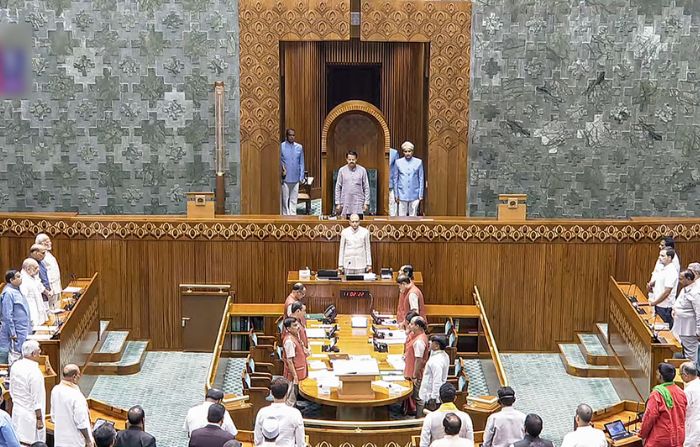
By: Shubham Ghosh
INDIA’S parliamentary democracy witnessed a rare development after the results of the 2024 general elections were announced. Neither the government of the National Democratic Alliance (NDA) nor the opposition Indian National Developmental Inclusive Alliance (INDIA) bloc could reach a consensus to pick the Speaker of the new Lok Sabha, the popularly elected Lower House of the Indian parliament, making an election unavoidable.
On June 26, Om Birla, the candidate of the NDA led by prime minister Narendra Modi’s Bharatiya Janata Party (BJP), was elected over his opponent Kodikunnil Suresh, nominee of the INDIA bloc, via voice vote. It was the second consecutive term for Birla, a three-time MP from the state of Rajasthan, as he served in the post in the previous Lok Sabha, which was in office between 2019 and this year. It was no surprise that Birla won since the NDA has a majority in the House with 293 members.
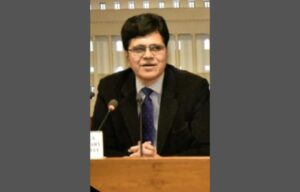
Arm-wrestling is also underway between the government and opposition over filling up the post of the Deputy Speaker which has remained vacant since 2019. The opposition, bolstered by this year’s election results, will be in no mood to allow the Deputy Speaker’s post to go to the NDA as well. Reports are already doing the rounds that the NDA would keep that as well, and that would fuel acrimony between the two sides.
As the drama unfolded on the floors of the noble House, India Weekly spoke to Ravindra Garimella, secretary of the leader of opposition of the Rajya Sabha or Upper House of the parliament who has a sea of experience as a parliamentary officer in the Lok Sabha secretariat, about a host of issues related to the election of the Speaker and other parliamentary and political issues.
Read: Rahul Gandhi’s sharp message to new Speaker of Indian parliament: ‘This election has shown…’
When India Weekly wanted to know whether the general convention of picking a Speaker of the Lok Sabha through consensus between the ruling and opposition parties was impossible in the current situation, Garimella said the INDIA bloc was constrained to contest the Speaker’s election since the ruling dispensation had not given an indication that the post of the Deputy Speaker would go to the opposition.
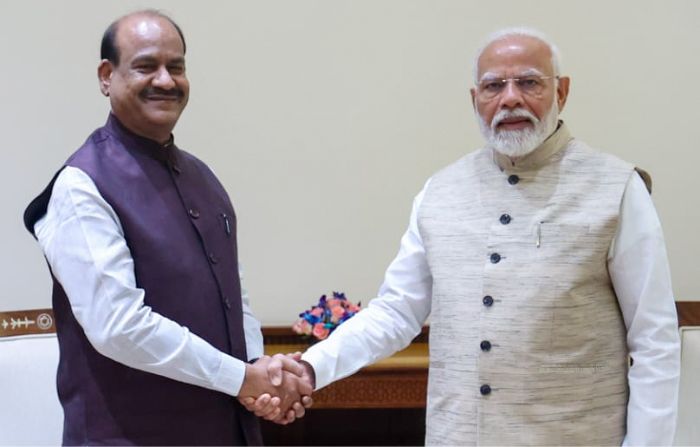
“Given the strength of the main opposition party which is the Indian National Congress and the overall opposition bloc in the 18th Lok Sabha, and going by the time honoured traditions even before the Speaker’s election is held, the ruling dispensation should have given an indication that the deputy Speaker’s post goes to the former,” he said, adding that the opposition had not pressed for a split and that the tradition has been to have the Deputy Speaker from the opposition parties.
“The Opposition contested the election of Speaker albeit through voice and stood firm on their demand that the post of Deputy Speaker goes to them as is the traditional norm,” he added.
Read: India witnesses rare bonhomie as Modi, Rahul Gandhi smile, shake hands
Garimella then touched upon the rule book and history to say that under the Rules of Procedure and Conduct of Business in Lok Sabha, any member or legislature party can propose the name of and second any other member for the Speaker’s post.
“There were three instances in the past where divisions were held on motions for the election of Speaker. These were during the First Lok Sabha on May 15, 1952, on the motion for election of G V Mavalankar. The opposition candidate was Shankar Shantaram More whose name was proposed by A K Gopalan. The second instance was during the Fourth Lok Sabha on March 17, 1967, on the motion for election of N Sanjeeva Reddy. The opposition candidate was Tenneti Vishwanathan who was backed by leaders such as N Dandekar, Shripad Amrit Dange, P Ramamurthi, Madhu Limaye and Atal Bihari Vajpayee.
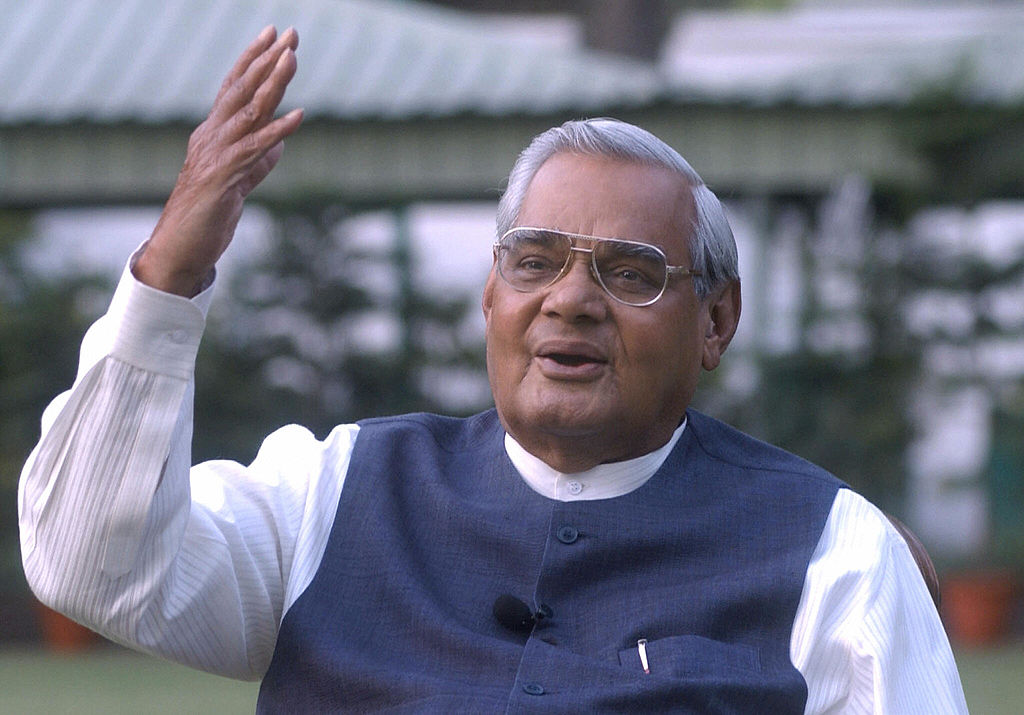
“The third instance was during the Fifth Lok Sabha on January 5, 1976, on the motion for election for Baliram Bhagat. The opposition candidate was Jagnnatharao Joshi on the motion for election given notice by Prasannbhai Mehta. In all the three instances, the official candidates got elected after division,” he told India Weekly.
Speaking about the voice vote that went in favour of Birla, Garimella clarified that exact figures of ‘ayes’ and ‘noes’ are known in case of actual voting which takes place when there are divisions but when a voice vote takes place, it is not feasible to know the exact figures of people saying ‘ayes’ and ‘noes’.
While the NDA managed to clinch the Speaker’s post, securing a political victory, there were demands from parties within the alliance to have the prized position as well. Since the BJP did not get a majority of its own, other key allies in the NDA such as the Telugu Desam Party (TDP) and Janata Dal-United (JDU) set eyes on the Speaker’s chair.
When India Today asked Garimella about the reason, he said the post of the Speaker is of critical importance in the Indian parliament. He said in cases where the Lok Sabha doesn’t have a single party with a clear majority and a coalition government decides who would be the candidate to hold the post, the consent of the allies becomes crucial.
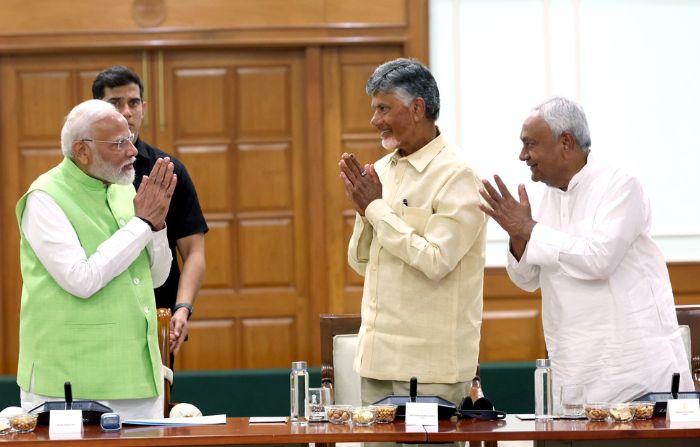
“For instance, in the 13th Lok Sabha between 1999-2004, during the NDA government headed by Atal Bihari Vajpayee, the Speaker’s post went to the TDP and, thereafter, to the Shiv Sena, both of which were important allies in the NDA then. When the first United Progressive Alliance government was there between 2004 and 2009, the Speaker’s post went to Somnath Chatterjee of the Communist Party of India (Marxist). The Left parties which gave support to the government had sought only the Speaker’s post.
“A party having their own Speaker does have a leverage in conducting the House’s proceedings,” Garimella said.
He added that since the BJP did not get a clear majority in this year’s election unlike in 2014 and 2019, and had to bank on parties such as the TDP and JD(U) to cross the majority mark, those two parties “logically” aspired for the post of the Speaker. Eventually though it was the BJP that put its own candidate for the post.
With the Opposition having a stronger presence in the parliament in the new Lok Sabha, is Speaker Om Birla going to see a more challenging period over the next five years compared to the last five?
To this, Garimella, who has been a joint secretary (legislation), said the Congress, which is the principal opposition party, has a strength of 98 members and it could become 99 if it retains the by-election in Wayanad constituency in the southern state of Kerala which has been vacated by Rahul Gandhi since he decided to retain the Rae Bareli seat.
The total strength of the INDIA bloc in the House is 237, including the Congress, and according to Garimella, such a composition of the Lok Sabha would certainly make the Speaker’s task challenging, compared to what he had in the previous House where the Opposition had a reduced presence.
Speaking about the significance of the Deputy Speaker and why there is an urgency to fill up the post this time, Garimella said being a constitutional position, it is also a significant one after that of the Speaker. Emphasising that the Deputy Speaker assumes the responsibility of the Speaker in case of a vacancy in the latter’s post, Garimella added that it was unprecedented in the annals of India’s parliamentary history that the post of the deputy Speaker remained vacant during the last Lok Sabha.
M Thambidurai of the All India Anna Dravida Munnetra Kazhagam (AIADMK), a former ally of the BJP, was the last Deputy Speaker that the Lok Sabha saw, between 2014 and 2019.
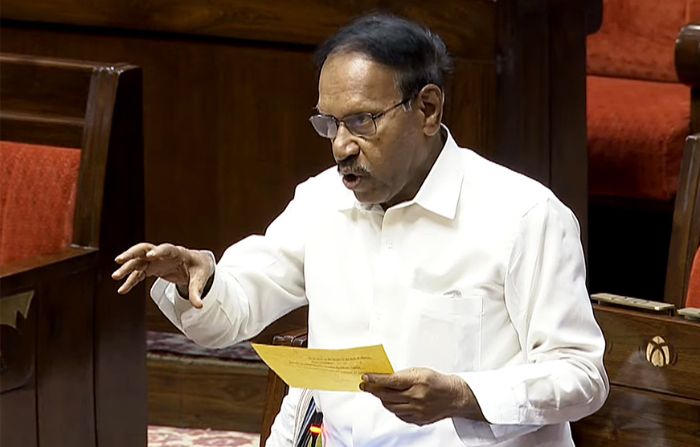
Citing the constitutional provision, he said, “Under the provisions of Article 93 of the Constitution of India, ‘the House of People, as soon as may be, choose two members of the House to be respectively Speaker and Deputy Speaker thereof…’.
“However, as per practice, over the years, while the election of Speaker is held on the third day of the first session of the new Lok Sabha, the election of Deputy Speaker usually takes place later during the second session,” he said
Garimella added that either the post of the deputy Speaker should go to the Congress party, the principal opposition party, or a consensual candidate, jointly put up for the post of the deputy Speaker by parties of the INDIA bloc, could be backed.
India Weekly also asked the expert on parliamentary democracy on the nature of the functioning of the House today. Do the chaotic scenes that unfold on the floors often signify a maturing democracy or do they see loss of productive hours and years for the nation?
With someone having over three decades of experience as a parliamentary and Table Officer, Garimella has seen a tradition of mutual respect in the House.
“Parties come and go, a party in power can always be the principal opposition party in future and vice versa. Respect for the opposition is a sine qua non for smooth functioning of the House.
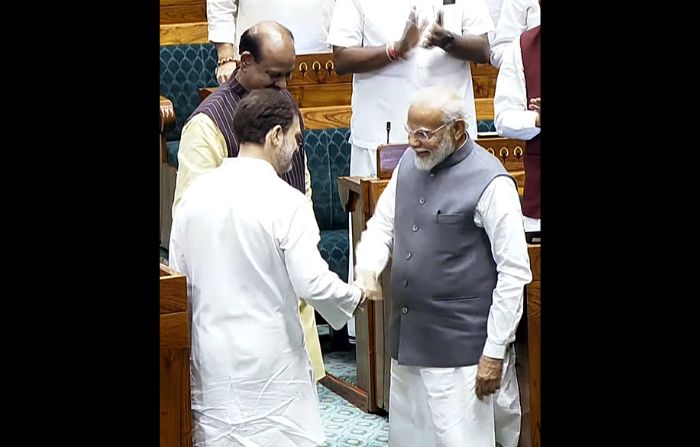
“When I joined the Lok Sabha Secretariat Legislative Division, one of the most important lessons which I got from my seniors is that all members are equal and while serving the institution of parliament, same regard and respect has to be given to a member irrespective of the fact whether he or she belongs to ruling party or opposition.
Garimella added that disruptions in the House can be avoided if the opposition is given its due space in the House and the ruling dispensation avoids being critical of opposition all through.
“The need of the hour is mutual respect between the ruling dispensation and the opposition. This would go a long way in ensuring smooth functioning of the House as well as vibrancy of Indian democracy,” he added.
As drama unfolded over the election of the Speaker of the new Lok Sabha, the instance from 1999 when the government of Atal Bihari Vajpayee had collapsed after losing a confidence motion by a solitary vote has returned to the discussion table to understand how significant the Speaker’s role is.
Twenty-five years ago, Giridhar Gamang, a former leader of the Congress, had cast his vote in the parliament despite getting elected as the chief minister of the eastern state of Odisha. The role of the then Speaker, GMC Balayogi, in allowing Gamang to vote was re-assessed.
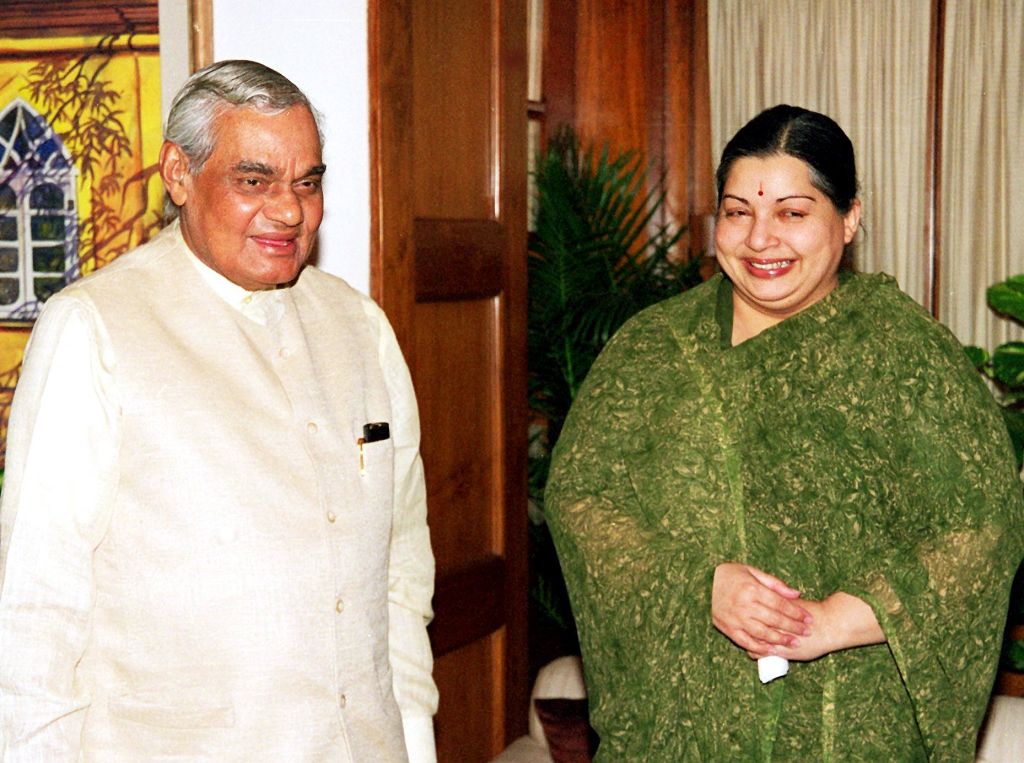
Calling that incident which saw the collapse of the government and necessitating fresh elections “one of the rarest and gripping moments” in his parliamentary career, Garimella said he still gets goosebumps while recalling that day.
He said it was not just the vote cast by Gamag but also that given by a member of the AIADMK in favour of the Vajpayee government which was not registered and he had not taken notice of the matter.
Speaking about the Gamang issue, Garimella said the former was then for all practical purposes a member of the Lok Sabha and under constitutional provisions, had time to contest the election to a member’s post of the Odisha legislative assembly.
“Gamang had all right had the full right to vote in a manner in which he desired,” he said.
Garimella doesn’t feel that defeat in the confidence motion was a major setback for Vajpayee, who continued as a caretaker prime minister till the next elections held in October 1999 and led the NDA back to power and remained in office till 2004.
When India Weekly asked him about the suspension of more than 140 opposition MPs of the parliament last December after they protested following an incident of security breach, Garimella said it was completely uncalled for.
According to him, the opposition members in both Houses of the parliament were merely demanding a statement either by prime minister Modi or home minister Amit Shah about the security breach.
“Had a statement been made by the government and the opposition’s concerns assuaged, the matter would have rested there. What was resorted to instead was suspension of all members who had demanded a statement by the government over the incident.”
About Ravindra Garimella
Ravindra Garimella is the secretary of the leader of opposition of the Rajya Sabha and has more than three decades of experience as a parliamentary officer in the Lok Sabha secretariat in the Indian parliament. He has studied parliamentary programmes in top democracies such as the US, UK and Australia. He had been a Visiting Fellow at the University of Warwick and at University of Nottingham. Garimella had also been private secretary to the Indian minister of tribal affairs and panchayati raj between 2011 and 2014 and was the assistant returning officer for the Indian presidential election 2017. He has been a regular correspondent for The Parliamentarian since 2005 and is associated with several parliamentary publications. He has written a book named Parliament of India- Diverse Dimensions which was published in 2020.